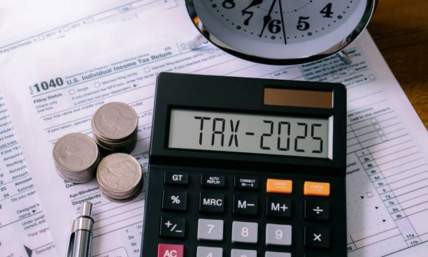CPA vs Tax Preparer: Which Is the Best Choice for Your Business?
Whether you have just established a business or have been running a business for years, you will need to ensure that your taxes and other financial obligations are in order. Certified Public Accountants (known as CPAs) and tax preparers are both able to assist you and your business in this way.
However, knowing whether to choose a CPA or tax preparer can be difficult because you need to ensure that all documentation is filed correctly, so the business can run as smoothly as possible.
In this guide, we’ll be taking you through everything you need to know about CPAs and tax preparers, including the different types of accountants that you may come across as well as the various advantages and disadvantages that come with each option. This ensures that you will be able to make a fully informed decision as to what is best for your business to get it where you want it to be.
Also read: Payroll Tax Vs Income Tax - The Ultimate Guide

Types Of Accountants
As you have probably learned, there are many types and fields of accounting. This is because certain areas require specific licenses and certifications that cater to that field. Therefore, it’s essential to understand the different types of accountants you may come across, so you can make the best decision for your business.
Depending on what your business needs and whether you require an accountant to go through your taxes or carry out other duties, this can impact what kind of accountant you choose.
Here are the most common types of accountants that CPAs specialize in:
Compliance Accountant
The first type of accountant you may wish to consider is a compliance accountant. To become a compliance accountant, the CPA will typically specialize in auditing throughout their education. This is because a compliance accountant’s role is to ensure that the controls owned by the business are in place to stop any fraudulent activity from taking place.
Similar types of accountants to compliance accountants are cost accountants or project accountants, but this is entirely dependent on your business goals as cost and project accountants are even more specialized within their field.
Also read: 8 Steps To Create An Effective Employment Development Plan For Your Small Business And Its Benefits
Managerial Accountant
The second type of accountant you should know about is a managerial accountant. Managerial accountants assess the financial health of the company and help with important decisions when it comes to budgeting, financial reporting, profitability analysis, and risk management among other things.
This is especially helpful for smaller businesses who may wish to expand and grow their business, but are unsure how to do this financially. This is because managerial accountants are able to analyze the finances of the company thoroughly and come up with strategies on how the business can achieve its goals.
Also read: What Should I Do If My Employer Won’t Provide A Pay Stub?
Tax Accountant
The last type of accountant you need to know about is a tax accountant. This is the most common type of accountant that businesses will most likely need, especially smaller businesses. As the title suggests, a tax accountant will work with businesses on their tax strategies in a bid to minimize any liabilities.
Their specialty lies in taxes, but tax accountants are also able to help out with other tasks such as estate and financial planning, so businesses can better manage their budget and expenses.
Also read: Do You Need Multiple W2 Forms From The Same Employer?

CPA or Tax Preparer
Now that you know about the various fields and types of accountants, it’s time to dive into what CPAs and Tax Preparers actually are and what advantages and benefits they can bring to your business.
This ensures that you’ll be able to make the best decision in terms of what requirements you have and where you want your business to be in the future.
CPA
The first option you can choose is a CPA, which is licensed by the American Institution of Certified Public Accountants, known as AICPA. Accountants who wish to sit any AICPA exam must have already completed their bachelor’s degree which includes 150 credit hours that focus on business, accounting, and general education.
There are four parts to the CPA which come with an 18-month passing period. The four parts are:
-
Auditing and attestation
-
Business concepts
-
Accounting
-
Reporting and regulations
When the accountant has passed all four parts of the exam, they can apply for licensure within their individual state. To ensure that the accountants are completely responsible and up to date, CPAs must complete 40 hours of education each year.
CPAs are not subject to limited representation rights meaning that they are authorized to represent clients to the IRS when needed alongside attorneys and enrolled agents.
Also read: Cost Of Living By State In USA
Why Should You Pick a CPA?
CPAs come with many benefits and advantages due to the extensive financial services that they can offer. They are able to offer tax planning as well as accounting support and discuss your tax strategy and overall financial situation.
A lot of small business accountants tend to carry out the tax preparer role among many other duties. This can include checking for any financial discrepancies as well as working with business executives such as CEOs and CFOs to create and establish budgeting plans, representing clients before the IRS, and auditing both business and individual accounts.
Tax Preparer
The second option you have is a tax preparer. Unlike CPAs, tax preparers are not required to have completed a college degree, meaning that the certifications involved can vary depending on the experience and education route that the individual has taken.
There are three types of tax preparers that you should be aware of. These are:
-
Annual Filing Season Program participants
-
Enrolled agents
Annual Filing Season Program participants and enrolled agents do not require any credentials beyond their PTIN (preparer tax identification number. Also, it is not a requirement in every state that tax preparers pass a tax competency exam. Those who have not passed such exams are not allowed to represent clients before the IRS.
Tax preparers tend to work seasonally and are usually employed by special tax filing service providers. On the other hand, enrolled agents can represent clients as they are authorized by the US government. Enrolled agents must complete the Special Enrollment Exam that is held by the IRS or previously worked at the IRS.
In terms of continued education, enrolled agents must be PTIN holders and carry out 72 hours of education every three years.
Why Choose a Tax Preparer?
Tax preparers are the best option for those who are looking for an individual to help them with filing taxes. This is because they are able to input the applicable tax data as well as collect the relevant financial records and use local, state, and federal laws to determine the appropriate deductions, among other duties.
This is the best option for smaller companies that have straightforward tax payments as it is a cheaper option, meaning that you will save money and still ensure that your tax returns are completed by the deadline.

FAQ
Is a CPA Worth It For a Small Business?
One question small businesses often ask is whether it is worth hiring a CPA to sort out their tax returns. Small businesses may be better off seeking the assistance of a tax preparer if they have straightforward taxes. This is because hiring a CPA may cost the business more with the same level of refund from the tax return as hiring a tax preparer.
However, if the small business requires financial auditing or reviewing in situations such as applying for grants or bank loans, then hiring a CPA will be hugely beneficial as they will be able to carry out this task.
Do You Get More Money If a CPA Does Your Taxes?
One of the main disadvantages that come with CPAs is that they are more expensive than tax preparers. However, hiring a CPA to complete your tax return can be hugely beneficial to you and your business’ finances. While CPAs may charge around $400 to complete a tax return, they can submit a more strategic tax return which can increase your total refund compared to what you receive if you used a tax preparer.
Is a Tax Accountant Different From a CPA?
Tax accountants and CPAs are completely different. This is because tax accountants have usually gained a bachelor’s degree that specializes in accounting. CPAs, on the other hand, have to undertake a variety of designated exams and complete a certain amount of hours of education and work requirements in order to gain their qualification. The specific requirements can differ depending on which state you are in.
Conclusion
Overall, when it comes to deciding whether a CPA or tax preparer is best for your business, you need to evaluate your business goals and determine what needs to be done on the accounting side.
CPAs have more qualifications and are able to carry out more responsibilities and tasks, but they come with a hefty price tag. On the other hand, tax preparers are a great choice for those who have straightforward taxes and don’t need a wide range of duties carried out as they are not as expensive to hire and ensure that your tax returns are completed.
Make sure that the decision you make is going to benefit the business by taking the time to evaluate how both options can benefit your business and help it grow.
It is imperative that employees can access their pay stubs so they can keep them for their own records.















